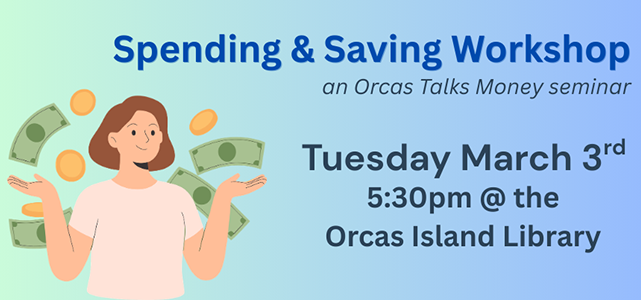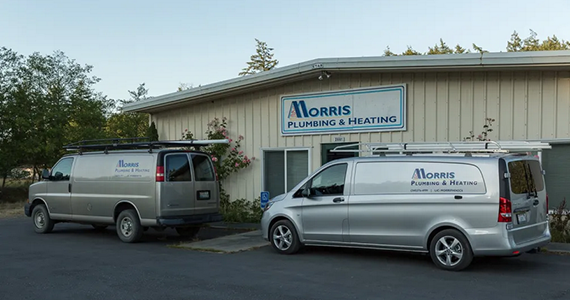||| FROM NECIA QUAST for LEAGUE OF WOMEN VOTERS |||
During public comment eight residents gave input on the climate element of the comprehensive plan. One welcomed wildfire planning. One bidder on emergency interisland passenger service spoke about his bid. An attorney expressed concern about a lack of transparency and response to questions about the proposed public works facility on Shaw Island.
The Conservation District gave a presentation on the updated County Wildfire Protection Plan drafted with input from 20 agencies and partners. The draft is now out for public input on the Engage site. While 78% of dwellings are in forest areas, the overall risk of wildfire in the county is low, with grasslands presenting the highest risk. The plan has a lot of focus on removing excessive fuel in overstocked forest land.
The council approved a letter of support for an Orcas project Congressional funding request. The council supported moving forward to leasing a part of a county-owned gravel pit to a private contractor on Waldron Island to address residents’ request to source gravel locally. Council member Fuller informed the councilors that Governor Ferguson would visit the county on July 14 with a focus on ferry services issues.
In the legislative update the council heard the operating budget is taking shape, but house and senate versions of the transportation budget are far apart. The tax system should become more progressive. They plan to shift 3% of revenues from the operating budget to transportation to fund culvert projects. The bills lifting the 1% property tax cap and allowing solar arrays on landfills are still alive. Money for San Juan ferry asks are in the budget, but the senate amendment could suspend ferry advisory committees.
Community development staff reviewed the housing and capital facilities elements of the comp plan; both have been out for public review since February. The housing element will look at permitting and code barriers, allow tiny home communities, perhaps pre-approved plans. The capital facilities element covering solid waste, community water and sewage facilities, plus schools, parks, libraries, ports and government facilities has minor updates.
The climate element of the comp plan focuses on climate resiliency and reducing greenhouse gas emissions. Climate change is affecting water supply, sewer and stormwater systems, roads and marine facilities, increasing wildfire risk. Developing local energy supply will be important and thus removing barriers to alternate energy production. The county has received 843 responses giving feedback about the climate element. The full report is on the Engage site.
The League of Women Voters, a nonpartisan organization encourages informed participation in government. The Observer Corps attends and takes notes at government meetings to expand public understanding of public policy and decisions. The notes do not necessarily reflect the views of the League or its members.
**If you are reading theOrcasonian for free, thank your fellow islanders. If you would like to support theOrcasonian CLICK HERE to set your modestly-priced, voluntary subscription. Otherwise, no worries; we’re happy to share with you.**









Thank you for covering this, LOWV. I have many thoughts on the climate element and how it segues with Land use and quality of life that we wish to protect.
Light Pollution is huge. Eastsound UGA should not be adopting Lopez Village’s model for our Light Ordinance, as advised by the EPRC, because our densities are so much higher than Lopez and our UGA is so much large, with the danger of being expanded (spawl belongs here, is the flawed thinking). This important discussion belongs on the table when discussing climate element (as well as land use), since impacts of light pollution affect migratory birds, amphibians, and insects. The more LIGHT we have, the less pollinating insects – many of which are pollinator moths that come out at night. I now see birds about all night, eating the moths that gather at our porch lights. Bat populations are declining. Light pollution is hurting pollination and migration all over the world. Please can we do our part here and convince Council to rethink this and develop light ordinances for each island’s needs – with some enforcement teeth as well? We don’t need high mounted spotlights, motion detector lights, and to be lit up like a Broadway stage. We can support dark skies, especially given the scourge to our night sky that is starlink. We can give people time, say a year or two, to come into compliance with existing lighting as well, regardless of what any previous commissioners have said.
Public Works road projects seem at odds with everything we would do for our environment and climate issues, in UGAs and elsewhere.how much deforestation is going on to build their road projects (needing ever-widening easements because,,, grant driven projects, taking the state dole, and having the pay the piper because we took the monies.). There seems to be a lack of understanding about engineering projects that damage wetlands and forests.. We pay big monies for ‘consultants’ to come up with plans and designs, while avoiding talking about the damage done. The dept. of ecology is probably defunded now. The County has decided that and we no longer need SEPAs in the UGA so that fails to protect Critical Areas sufficiently. One arm of the government doesn’t know what the other is doing. We need better checks and balances within our local government.
The real question to ask in all sincerity is, are we a Rural archipelago – or not? Because I’m confused.
If we still count ourselves as rural, we have no business allowing and expanding UGA watersheds and then deforesting and degrading them. Some of us have been saying this for decades, to deaf ears and blind eyes. It’s hard to imagine what will change this stance. It’s why people burn out or give up showing up at these workshops and meetings after years of frustration with witnessing more unregulated growth and short-sighted planning, or some rich and powerful person or other threatening to sue the County for not letting them do what they want – including violating land without even going through a permit process. I’m tired of seeing capitulation to this type of bullying. Council never stood up to them before or honored all of the Comp Plan elements.
We have a fantastic planner in Sophia Cassam (spelling). I hope she doesn’t burn out and that she has some good assistants. It’s also time to finally recognize tiny homes and tiny home communities as long-term housing solutions. if these communities could be put on already cleared or disturbed land and replanted, rather than deforest undeveloped land especially in and around the UGA, we’d have a bit of Urban forest left, providing much needed shade and windbreak – and some housing solutions that are affordable.
We still only still have 3 people making all the decisions on the Eastsound Planning and Review Committee (EPRC)- a UGA advisory group that only looks at permits but can’t really advise anything meaningful, though some have tried over the years. Last year, Council would not allow Charles Toxey to serve a 3rd term, despite his fair mindedness, level head, collaborative nature, and extensive knowledge of land use. We still have 4 seats out of 7 open because of this policy, when I know that there were others previously who did third terms (and then some.)
We’re told that ‘that’s the way it is’ and we can do nothing to stop the way it’s going. If that is true, then why waste everyone’s time and energy again and again? See, I don’t believe that’s true. WE can effect change for the better and start planning for further out than 10 or 20 years, which is extremely short sighted.
Greenhouse gas and carbon – that’s a great start, but it’s only one factor in our climate issues. There are so many others. What about methane? Radiofrequency radiation? Jet-A fuel? What about wetlands and watersheds and how to protect them and forests, including in UGAs which are built on top of the wetland watershed, at least here in Eastsound UGA. All of our UGAs have sensitive marine habitat; Eastsound is unique in that is has salt water on both sides of the 1 mile wide land bridge between two large hills. Our extraordinarily expensive electricity and the all-electric push going on in the UGAs will not solve anything. (mining of lithium and other precious metals for the batteries, even in solar banks). Incentivizing conservation would help.
People say ‘stop living in the past’ when we bring up the fragile state of our environment. I disagree that caring for what’s here generations out from now is ‘living in the past.’ I think of it as ‘forward thinking.’ What will we do about this? What can be done? I’d love to see more young people getting involved. You-all will inherit this place. We need to hear your voices.